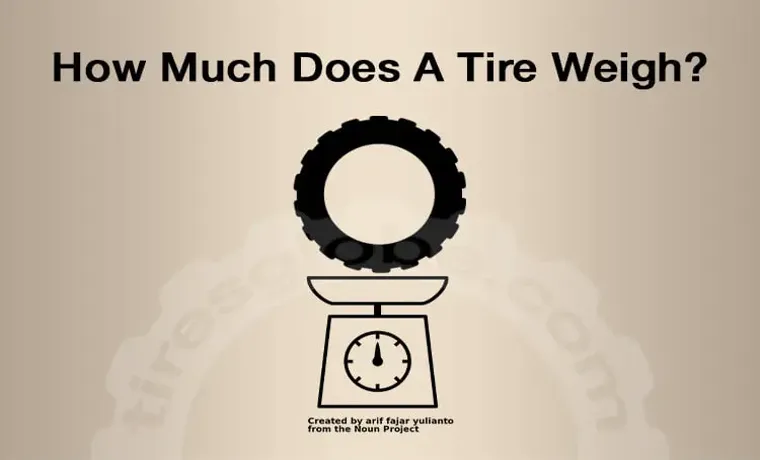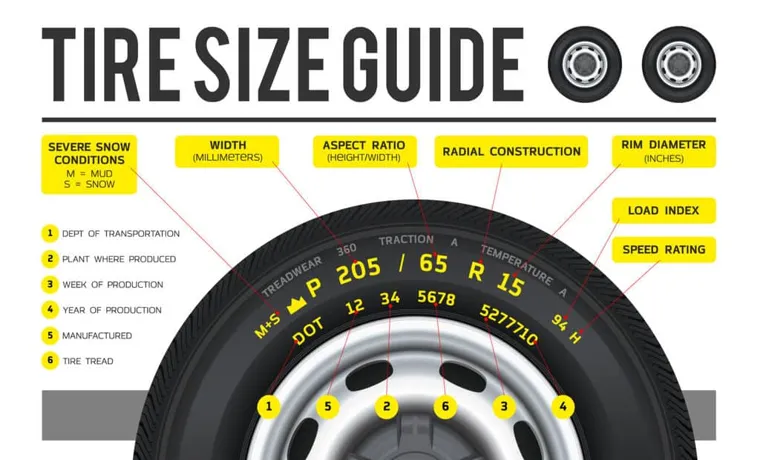Have you ever wondered how much a super single tire weighs? Maybe you’re a truck driver, or you work in the transportation industry, and you need to know the weight of these heavy-duty tires for logistical reasons. Perhaps you’re just curious about the weight of these massive tires that can handle loads of several tons. Either way, the weight of a super single tire is an important topic to explore.
In this blog post, we’ll discuss what a super single tire is, why it’s important to know its weight, and how much a typical super single tire weighs. So, let’s get rolling and explore this important topic together.
Table of Contents
Understanding Super Single Tires
If you’re in the trucking industry, you’ve probably heard of super single tires. These tires are gaining popularity among trucking companies because of their economic and environmental benefits. They are wider than traditional dual tires, which means that they can carry more weight.
But how much does a super single tire weigh? The weight of a super single tire depends on its size and the type of rubber used. On average, a super single tire can weigh between 120-150 pounds. While this might seem heavy when compared to a passenger car tire, it’s important to note that these tires are designed to support a much larger load.
Additionally, because a single tire can take the place of two tires, it can reduce the weight of the overall vehicle and increase fuel efficiency. Overall, super single tires are a great option for those looking to save money and reduce their carbon footprint.
Definition of Super Single Tires
Super single tires are essentially a type of tire that is wider than the traditional dual tire setup. Rather than having two tires next to each other, super single tires are designed to be a single, wider tire. This brings several benefits and drawbacks to the table, including improved fuel efficiency, reduced weight, and improved handling.
However, it also means that if one of these tires fail, there is a higher chance of a blowout due to the larger surface area of the tire. The usefulness of super single tires depends on the specific use case and the type of vehicle they are being installed on. Overall, understanding the benefits and potential drawbacks of super single tires is important before making a decision on whether to switch from a traditional dual tire setup.

Advantages of Super Single Tires
Super single tires offer numerous advantages compared to standard dual tires. These wide-based tires are designed to replace two traditional tires on a single axle, and can carry the same weight as their dual counterparts whilst providing various benefits. Firstly, the reduced number of tires helps lower fuel consumption by reducing rolling resistance, translating to significant fuel savings over time.
Additionally, with their larger surface area, super singles offer better traction and improved stability, making them ideal for use in extreme weather conditions. Moreover, these tires have less tire noise and reduce maintenance costs by lowering the number of tires that have to be serviced and replaced. In short, super single tires offer efficiency, fuel savings, and enhanced safety on the road, making them a great choice for commercial vehicles.
Factors Affecting Weight of Super Single Tires
When it comes to super single tires, their weight can vary depending on several factors. The first factor is the tire size, as larger tires tend to weigh more than smaller ones. The type of material used to manufacture the tire also plays a role, with some materials being denser than others.
The tire’s tread depth is another factor, as more substantial treads can add weight to the overall tire. Additionally, the tire’s load-carrying capacity will impact its weight, with higher capacity tires generally being heavier. Environmental factors can also influence the weight of a super single tire, such as the temperature of the air or the road surface.
So, to answer the question of how much a super single tire weighs, it ultimately depends on several factors that can affect its weight.
Tire Size
Super Single Tires When considering the weight of super single tires, there are several factors to take into account. Firstly, the tire size will play a significant role in determining weight. Generally, larger tires will be heavier, but this can vary depending on the materials used.
Additionally, the type of vehicle the tire is being used on will also impact the weight, as heavier vehicles require stronger and more durable tires. The construction of the tire is another key factor, with heavier materials often being used in larger, more heavy-duty tires. Overall, when choosing a super single tire, it’s important to consider not only the weight but also the specific needs of the vehicle and the conditions in which it will be used.
By taking these factors into account, you can ensure that you choose the right tire for your needs, providing both durability and performance.
Tire Construction
When it comes to the weight of super single tires, there are several factors that come into play. One of the biggest factors is the construction of the tire itself. Super single tires are typically made with stronger and thicker materials than traditional dual tires, which can add to the overall weight.
Additionally, the tread design and depth can affect the weight of the tire, with deeper treads typically being heavier. Another factor to consider is the load capacity of the tire, as tires with higher load capacities may require thicker and heavier construction materials. It’s important to work with a knowledgeable tire dealer or manufacturer to find the right combination of construction, tread design, and load capacity to meet your specific needs while keeping weight at a manageable level.
With proper selection and maintenance, super single tires can provide long-lasting performance and savings in fuel and maintenance costs.
Tread Pattern
When it comes to the weight of super single tires, there are several factors that need to be taken into consideration. One of these factors is the tread pattern. The tread pattern on a tire refers to the design on the surface of the rubber that comes into contact with the road.
Different designs offer different benefits, but one thing they all have in common is that they affect the weight of the tire. Tires with more aggressive tread patterns tend to be heavier than those with more mild patterns, as they require more rubber to be used. This usually means that they are better suited for off-road or heavy-duty use where traction is essential.
In contrast, tires with less aggressive tread patterns are more aerodynamic and lighter in weight, making them ideal for highway use where fuel efficiency is important. Regardless of the application, it’s important to choose a tread pattern that meets your needs while keeping in mind how much weight you can afford to add to your vehicle.
Average Weight of Super Single Tires
If you’re looking to purchase a super single tire, you might be wondering just how much it will weigh. On average, a super single tire typically weighs around 600-700 pounds. Of course, the exact weight can vary depending on the specific tire model and size.
These single, wider tires are a popular choice for heavy-duty trucks and trailers because they can handle a greater amount of weight without requiring a dual tire setup. They also offer improved stability and better fuel efficiency compared to a dual set, making them a smart choice for many drivers. It’s important to keep in mind that when purchasing a super single tire, you’ll need to make sure it is compatible with your vehicle’s weight ratings and axle configurations to ensure safe and efficient operation on the road.
Comparison with Dual Tires
When it comes to choosing between dual tires and super single tires, one factor to consider is weight. Super single tires, also known as wide-base tires, are generally lighter than their dual tire counterparts. On average, a single super single tire weighs around 105 pounds, while a standard dual tire setup can weigh anywhere from 300 to 600 pounds.
This means that switching to super single tires can potentially reduce a vehicle’s weight, increasing fuel efficiency and reducing overall costs. Of course, it’s important to consider other factors when deciding between dual tires and super singles, such as load capacity, road conditions, and maintenance requirements. But if weight is a major concern, super singles may be the way to go.
Common Super Single Sizes and Weights
When it comes to Super Single tires, one question people often ask is, “What is the average weight of these tires?” Well, the truth is that the weight of a Super Single tire can vary depending on its size and manufacturer. However, there are some common Super Single sizes that you can expect to find. For example, a 385/65R2
5 Super Single tire typically weighs around 150 pounds, while a 445/50R25 Super Single tire can weigh up to 180 pounds. These are just averages, though, and you may find that some manufacturers’ tires weigh more or less than these estimates.
Ultimately, the weight of your Super Single tires will affect your fuel efficiency, so it’s important to choose the right tires for your needs.
Conclusion and Recommendations
In the end, the weight of a super single tire is nothing to scoff at. It may not be as massive as a full-sized spare for an SUV, but it still packs a punch. At the same time, it’s not so heavy that you’ll break your back trying to move it around.
It’s like the middle child of tire weights – not too big, not too small, but just right for balancing performance and maneuverability. So the next time someone asks you how much a super single tire weighs, you can confidently answer, “Enough to make a difference, but not so much that it’ll crush your dreams (or your toes).”
FAQs
What is the average weight of a super single tire?
The average weight of a super single tire is approximately 120 pounds.
How much does a specific brand of super single tire weigh?
The weight of a specific brand of super single tire can vary, but it is typically between 115-125 pounds.
Can the weight of a super single tire affect the performance of a vehicle?
Yes, the weight of a tire can affect the performance of a vehicle, including fuel efficiency, handling, and acceleration.
Is there a weight limit for vehicles using super single tires?
Yes, there is a weight limit for vehicles using super single tires. Each tire has its weight capacity, and it is important to ensure that the vehicle’s weight is evenly distributed across all tires.
How does the weight of a super single tire compare to a standard tire?
Super single tires are typically heavier than standard tires, with an average weight difference of around 25-30 pounds.
Can the weight of a super single tire affect the lifespan of the tire?
Yes, the weight of a tire can affect its lifespan. Heavier tires can put more stress on the suspension and other components of a vehicle, leading to more wear and tear on the tire.
Are there any benefits to using lighter super single tires?
Yes, using lighter super single tires can provide benefits such as improved fuel efficiency, better handling, and increased payload capacity.



